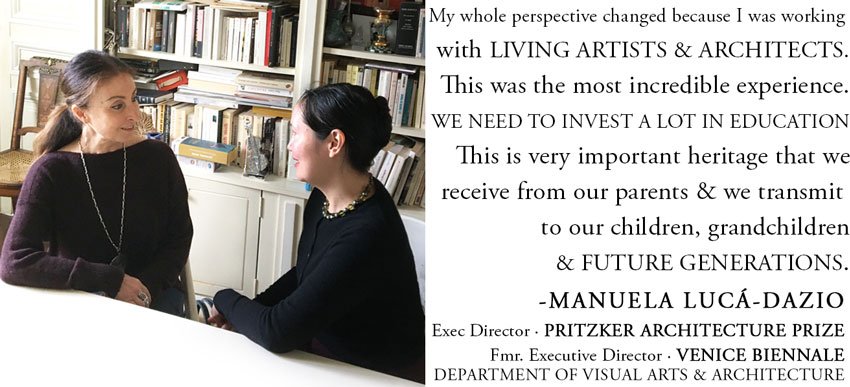Madeleine Watts is an Australian writer based in New York. Her first novel The Inland Sea was published in 2020 and was shortlisted for the Miles Franklin Literary Award and the UTS Glenda Adams Award for New Writing. Her essays and stories have been published in Harper’s Magazine, The Believer, The Guardian, The White Review, and The Paris Review Daily, among others. She teaches creative writing at Columbia University in New York. Her second novel, Elegy, Southwest, is forthcoming.
THE CREATIVE PROCESS · ONE PLANET PODCAST
The Inland Sea takes its structure from the Australian seasons.
MADELEINE WATTS
So the book is divided. In the first section, summer, the equivalent of summer is Heat. And then there is Flood, which in Australia does tend to happen sort of towards the beginning of autumn, particularly if there have been tropical cyclones in the north of the country. And then winter I've given Tremor. Australia is not somewhere that particularly experiences earthquakes. And so I was interested in introducing something, sort of climactic form of extremity that doesn't happen very often. And then the end of the book, the springtime is Fire. So that was how it came into form because I was interested in talking about the ways in which humans have created an idea of what nature should be in the way that we make our human culture and human meaning from the weather in our environments. And that was not the case where I was from, and it's not the case anymore. So to sort of undo some of that idea of the four seasons being harmonious.
THE CREATIVE PROCESS · ONE PLANET PODCAST
Another unique structural binding together are how you’ve woven the different stories. The narrator, who isn't named, is an emergency operator for Triple Zero, which is Australian equivalent to a 911 operator. But since it’s set ten years ago, Australia has been experiencing events since the time of the novel, bush fires, Black Summer, and koalas are now on the verge of extinction. You see them crossing the road because their habitats have just been devastated. So each year I hear people say “It's the worst summer on record.”
WATTS
The Inland Sea came out in 2020. And in that period as I was writing it, I would keep noticing each year would be "the worst on record." Like the hottest day on record, the most fires on record. And there was a sort of strangeness to having written the book in a period of Black Summer fires that burned for nearly six months and just decimated huge sways of land. In 2020, I had gone back to the Sydney Writers Festival and spent some time with family, and then just got stuck for months in the COVID lockdown. And I would go on runs into these stretches of bushland that had been burned, and I would make my way through these skeleton forests. The trees were black. The soil was black. There was no color at all. No bird song. No insects. And it was March. There should have been so much wildlife. It was deeply eerie.
THE CREATIVE PROCESS · ONE PLANET PODCAST
The Inland Sea has a recent historical setting for the novel, but there's an even deeper looking back due to the lineage of the narrator who is a relation of John Oxley. Tell us what is the Inland Sea and how is this a metaphor for our delusions?
WATTS
So John Oxley features as a sort of minor plotline in the book. He is convinced that the Inland Sea just has to be there. And that set off an enormous number of other European colonizers going out into the interior, sometimes with whale boats trying to find this Inland Sea. And I was reading ecological history and also reading about violence against women and how violence perpetuates itself over many generations. And there was something about this European sort of supremacy of ideas about nature, their ideas about rationality, all of this stuff that sort of came from the Enlightenment. John Oxley's diaries made no mention of the Indigenous Australians who were at the time subject to genocide. So I was interested in these ideas about how they tried to tame the land, which is often talked about as "a woman" and the way that the kind of violence that comes from a particular kind of European colonial project that is enacted on the land intertwines with the way that violence is enacted upon women. And it was something that I felt growing up in Australia.
THE CREATIVE PROCESS · ONE PLANET PODCAST
What are your reflections on the importance of the arts and the kind of world we are leaving for future generations?
WATTS
I think one thing that is not talked about enough is the importance of the arts and the importance of the humanities. And on the university level, the defunding of these sorts of programs and the kind of devaluing of that knowledge is an enormous loss. The arts are what tell us who we are. They're for the soul and they make being alive worthwhile. And the importance of making connections and finding a way to reach others and communicate and connect by trying to be honest and complicated and complex - because I truly believe that without those things, whatever future we can imagine for ourselves is going to be paltry. And it won't be imaginative. And without the humanities and the arts, it doesn't make me feel hopeful about the future.
This interview was conducted by Mia Funk and Indigo Pinder Magaña with the participation of collaborating universities and students. Associate Interviews Producer on this episode was Indigo Pinder Magaña.
Mia Funk is an artist, interviewer and founder of The Creative Process & One Planet Podcast (Conversations about Climate Change & Environmental Solutions).















































































